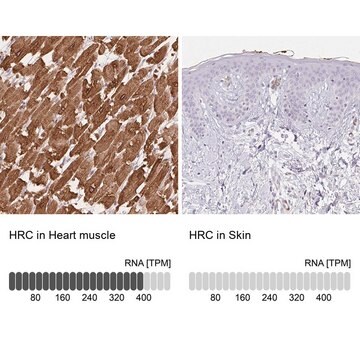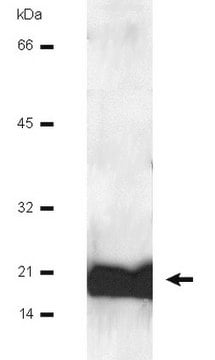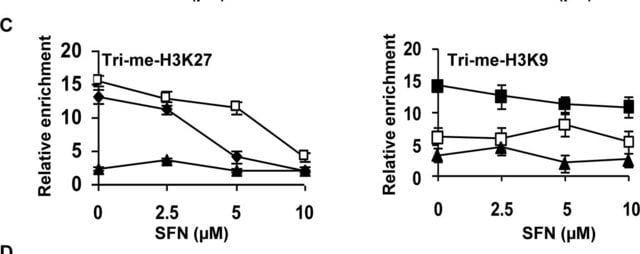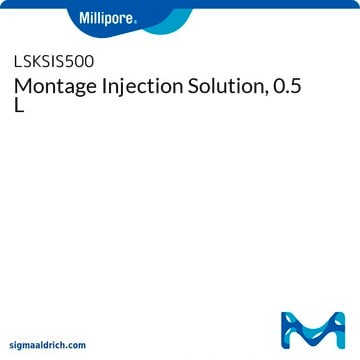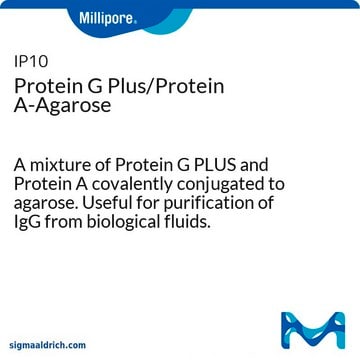07-052
Anti-phospho-Phospholamban (Ser16) Antibody
Upstate®, from rabbit
Synonyme(s) :
cardiac phospholamban
About This Item
Produits recommandés
Source biologique
rabbit
Niveau de qualité
Forme d'anticorps
affinity purified immunoglobulin
Type de produit anticorps
primary antibodies
Clone
polyclonal
Produit purifié par
affinity chromatography
Espèces réactives
mouse, canine, rat, rabbit, bovine, pig, human
Fabricant/nom de marque
Upstate®
Technique(s)
western blot: suitable
Isotype
IgG
Numéro d'accès NCBI
Numéro d'accès UniProt
Conditions d'expédition
dry ice
Modification post-traductionnelle de la cible
phosphorylation (pSer16)
Informations sur le gène
human ... PLN(5350)
Catégories apparentées
Description générale
Spécificité
Immunogène
Application
Metabolism
Signaling
Muscle Physiology
General Post-translation Modification
Qualité
Western Blot Analysis:
0.5-2 µg/mL of this lot detected phosphorylated phospholamban from a bovine cardiac preparation that was incubated with 10 µg PKA (Catalog # 14-114) for 10 minutes.
DO NOT BOIL CARDIAC PREPARATION.
Boiling may reduce the 25 kDa pentamer into tri-, di- or monomers. In addition, phosphorylation may disrupt the pentamer into dimers and monomers.
Description de la cible
Forme physique
Stockage et stabilité
Handling Recommendations: Upon first thaw, and prior to removing the cap, centrifuge the vial and gently mix the solution. Aliquot into microcentrifuge tubes and store at -20°C. Avoid repeated freeze/thaw cycles, which may damage IgG and affect product performance. Note: Variabillity in freezer temperatures below -20°C may cause glycerol containing solutions to become frozen during storage.
Remarque sur l'analyse
Bovine cardiac preparation, treated with PKA.
Autres remarques
Informations légales
Clause de non-responsabilité
Vous ne trouvez pas le bon produit ?
Essayez notre Outil de sélection de produits.
Code de la classe de stockage
10 - Combustible liquids
Classe de danger pour l'eau (WGK)
WGK 1
Certificats d'analyse (COA)
Recherchez un Certificats d'analyse (COA) en saisissant le numéro de lot du produit. Les numéros de lot figurent sur l'étiquette du produit après les mots "Lot" ou "Batch".
Déjà en possession de ce produit ?
Retrouvez la documentation relative aux produits que vous avez récemment achetés dans la Bibliothèque de documents.
Notre équipe de scientifiques dispose d'une expérience dans tous les secteurs de la recherche, notamment en sciences de la vie, science des matériaux, synthèse chimique, chromatographie, analyse et dans de nombreux autres domaines..
Contacter notre Service technique